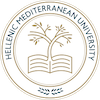Inter-institutional Postgraduate Program
Nanotechnology for Energy Applications
https://www.hmu.gr/mscnano/

Purpose of the D.MSc “Nanotechnology for Energy Applications” is the organization and implementation of standard postgraduate studies, through student education and the provision of knowledge and high specialization, in the technology of built-in semiconductors, for the development of research and their applications in the modern sciences of nanotechnology, in energy. The establishment of this D.MSc aims to deepen cooperation between the various research teams and laboratories operating in the field of multifunctional nanostructures, third-generation photovoltaic devices as well as the development of energy storage devices.
In particular, the D.MSc has as scientific goals:
to familiarize and develop the skills and abilities of its graduates in the use of basic tools and methods/techniques for the preparation, modification, and characterization of built-in materials and the corresponding energy devices that can compose the transfer of knowledge for the combination of the most modern theory of nanomaterials with the corresponding technological applications and cutting-edge achievements.
In addition, the D.MSc aims to:
a) in the capitalization of the existing knowledge and the results, which have been produced by the participating research groups,
b) to support the development of interdisciplinary research in the field of energy production and storage,
c) in the development of a technological platform for testing new materials and devices and
d) in the training of graduates in general in the field of energy production from renewable energy sources (RES), as well as energy saving.
During their studies at DPSMS, graduates will also develop personal skills, such as critical thinking, the ability to design research studies, the ability to present orally, and the ability to write scientific articles. These skills combined with the know-how and specialization of graduates in modern applications of nanotechnology will make them a highly attractive and competitive scientific staff. In this way, the D.MSc will contribute to the development and adaptation to the modern requirements of research, technology, education and the labor market in Greece and internationally, while improving and further developing the research skills of its graduates will be a solid foundation for continuing their studies at the doctoral level.
Achieving the goals of D.MSc and the quality of his studies is ensured by:
a) its implementation in a standard laboratory and research infrastructures, well equipped and
b) the participation in the teaching of well-trained teaching staff (faculty members, researchers) of the three educational and research institutions (Hellenic Mediterranean University, University of Crete, FORTH), both nationally and globally.
In addition, a significant part of the teaching and research staff of the cooperating institutions has developed extensive networks of cooperation with institutions in Europe and Greece. These collaborations are valuable for the renewal of scientific approaches in the field of research, for the mobility of students and for the reputation of the institutions of Crete in the international arena. Through the offer of the said D.MSc, it is possible to upgrade the existing collaborations, by concluding more permanent relations with academic institutions.
The D.MSc in “Nanotechnology for Energy Applications” has a duration of three (3) academic semesters of full-time study and five (5) academic semesters of part-time study. During the first two semesters, students will attend 6 compulsory and 2 elective compulsory courses, while in the last semester they will be available for the elaboration of the master’s thesis in one of the collaborating laboratories.

